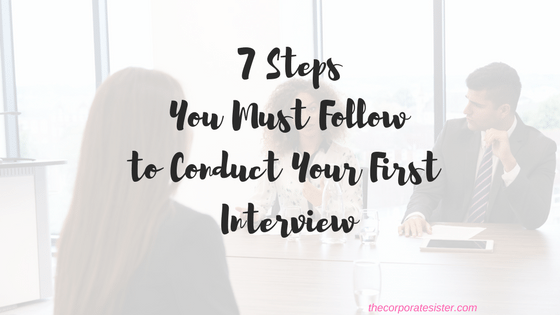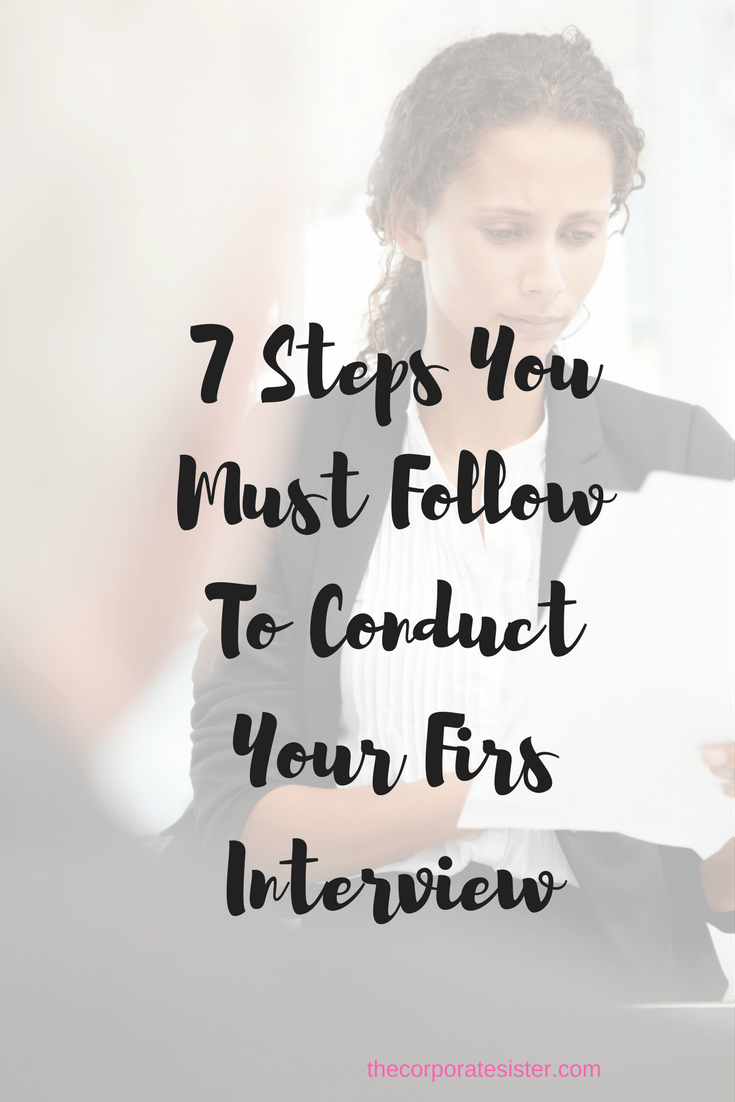 I remember the first time I was asked to interview a candidate in Big Corporate. It was mid-afternoon on a Friday afternoon, I was wrapping up on my current projects, listening to iHeart Radio and planning my outfit to go out to dinner with a couple of friends that evening. Then a slight knock on the side of my cubicle, as my Director turned to me and handed me a pristine resume, accompanied by a few hurried words: ” I need you to fill in and interview this guy.” Ok…
I remember the first time I was asked to interview a candidate in Big Corporate. It was mid-afternoon on a Friday afternoon, I was wrapping up on my current projects, listening to iHeart Radio and planning my outfit to go out to dinner with a couple of friends that evening. Then a slight knock on the side of my cubicle, as my Director turned to me and handed me a pristine resume, accompanied by a few hurried words: ” I need you to fill in and interview this guy.” Ok…
Me: “Hmmm…sure. When is the interview?”
Him: “In an hour.”
Longest hour of my career, as I fiddled with someone else’s career story, wondering how in the world I would hold my own in my first, impromptu interview without fainting or spilling my late lunch all over the poor guy’s resume.
And of course, the clock kept racing my mind, as I desperately tried coming up with inventive ideas to leave the office (and never come back again). It didn’t work out, and I did conduct my first interview, without any vomiting or hives incidents.
As it turned out, my assessment of the candidate was right on the money, and while I did not make the ultimate hiring decision, I hired quite a few interviewing lessons from the career battleground over the years (and kept them):
-
Understand what your company/department needs.
Does your department need a PhD able to give a high-level overview of the work at a minute’s notice? Or do you really need a manager close to the work, ready to get in the mud with the team and get the job done? Are specific skills required, or can the department make do with a general set of qualifications? Understanding EXACTLY what your company or department, or even yourself as the hiring manager, needs is crucial to assessing the fit of the candidate.
-
Do your homework.
Study the candidates’ resumes, assess their skills, retrace their career paths in your mind. A good practice is to put yourself in the candidate’s shoes. Read between the lines, try sensing what their goals, ambitions, likes and dislikes are. If you have access to their social media channels, try investigating there as well, and seeing what their likes/dislikes outside of work are. No need to stalk them, but you must do your homework first.
-
Establish a conversation.
The interview is not a federal investigation. Please relax and see it as a healthy conversation between two people who are learning to know each other. Listen carefully, slowly, and engage with the candidate. This will allow for a more authentic and honest echange.
-
Answer thoroughly.
Be honest when answering the candidates’ questions. This is not about upsetting the job or company, but really allowing both yourself and the candidate to evaluate whether this is a good fit or not. Be open, without revealing the confidential nature of your business.
-
Ask follow-up questions.
Most candidates are prepared for standard interview questions (at least, one would hope). Make sure to follow up standard interview questions (and their standard, canned responses), with thoughtful follow-up questions that actually reveal the candidates’ deeper motives. The devil’s in the details, right?
-
Use your intuition.
Do not set aside your intuitive powers. Trust your gut instinct and experience to tell you more about the candidate than a whole resume and packed interview can. Leave some room for intuitive questions and assessments.
-
Describe the next steps.
Do not leave the interview room without informing the candidate of the next step. Provide them with some form of closure as to the remainder of the process.
Now go on and ace that first interview…
How did your first interview as the interviewer go?
The Corporate Sis.








I simply want to mention I’m beginner to blogs and absolutely savored your blog. Almost certainly I’m likely to bookmark your blog post . You surely come with impressive posts. Many thanks for revealing your blog site.